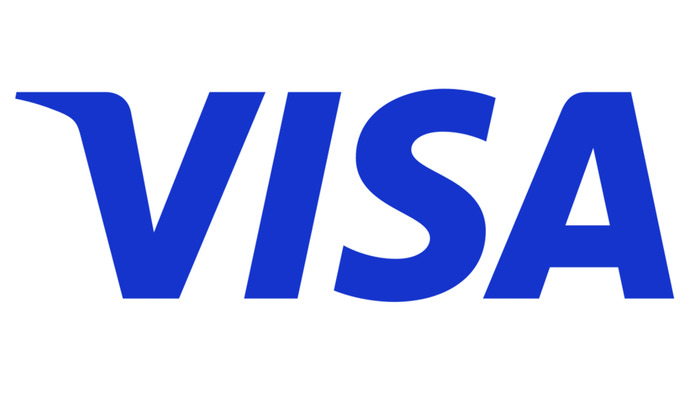iGaming Payment Solutions
Want players to deposit quickly and withdraw without friction? iGamingX can connect your team with vetted iGaming payment solutions’ partners and help you integrate them in weeks. Below you’ll find the building blocks of a reliable, scalable and compliant payment stack – from cards and e-wallets to real-time bank rails and crypto.

iGaming Payment Providers
What are iGaming Payments?
iGaming payments cover every transaction that moves money between a player and an online casino, sportsbook or poker room – deposits, payouts, bonuses and chargeback refunds. Because the vertical sits in a high-risk MCC, acquirers tighten rules, and approval ratios are typically 5-10 percentage points lower than mainstream e-commerce.
The iGaming payment process involves several key components working together to facilitate secure transactions. Payment gateways act as intermediaries between players and gaming platforms, while payment processors handle the technical aspects of transaction authorization and settlement.
How iGaming Payment Gateways Work
A specialised payment gateway receives a player’s card or wallet details, tokenises them, routes the data to a local acquirer, and returns an authorisation in 1-2 seconds. Smart routing to multiple acquirers raises acceptance by as much as 14% for LATAM traffic. Gateways also run fraud-screening, Strong Customer Authentication (SCA) and velocity checks to meet EU PSD2 rules.
Transaction Flow Process
- Player Initiation: The player selects their preferred payment method and enters transaction details
- Gateway Authorization: The payment gateway securely transmits transaction data to the appropriate payment processor
- Verification: The processor verifies account details, available funds, and performs fraud detection checks
- Authorization Response: The system returns approval or decline status to the gaming platform
- Settlement: Approved transactions are settled, with funds transferred between accounts
Casino & Gambling Payment Processing: Challenges and Needs
The iGaming industry faces unique payment processing challenges that differ it from traditional e-commerce. High-risk classification by financial institutions often results in higher processing fees and stricter compliance requirements for gaming operators.
- High decline and chargebacks – Dispute rates in digital goods jumped 78% YoY in Q3 2024; gambling is among the hardest-hit segments.
- Regulatory patchwork – Credit-card bans in the UK and Germany force operators to offer alternative payment methods.
- AML & responsible-gaming reporting – New 2025 guidelines require real-time monitoring of deposits > €2 000.
Choosing the Right iGaming Payment Provider
Selecting an appropriate payment provider is important for operational success and player satisfaction. Your decision impacts everything from transaction success rates to regulatory compliance and customer experience. Below we highlighted the main factors you should we aware of:
| Factor | Why it matters | Target benchmark* |
|---|---|---|
| Speed | Sub-200 ms gateway response keeps checkout abandonment < 5% | <250 ms round-trip |
| Approval ratio | Direct local acquiring avoids cross-border declines | >88% on first pass |
| Fees | Blend of MDR, FX and payout costs shapes net margin | Cards < 3.5%, APM < 2% |
| Support | 24/7 fraud & tech chat prevents downtime | SLA < 15 min |
Moreover, you can use this checklist for provider selection:
- ✅ Licences in Tier-1 jurisdictions (MGA/UKGC)
- ✅ PCI DSS v4.0 & ISO 27001 certificates
- ✅ Real-time fraud engine & SCA compliance
- ✅ Segregated client accounts for player funds
- ✅ Crypto on-/off-ramps if targeting emerging markets
Alternative Payment Methods in iGaming
Alternative payment methods have gained significant traction in the iGaming industry, offering players more flexibility and privacy options. These methods include prepaid vouchers, mobile payments, and cryptocurrency solutions that cater to diverse player preferences and regional requirements.
For example, Trustly’s Pay N Play lets users deposit straight from a verified bank and is live at 500+ EU casinos. Latin-American rooms push voucher cash-ins such as AstroPay to reach the unbanked.
Credit Card Processing in the Gambling Industry
Credit card processing remains a cornerstone of iGaming payments despite industry challenges. Visa and Mastercard continue to dominate the market, though operators often face higher processing fees and stricter compliance requirements compared to other industries.
Visa, Mastercard and card payments still command 45% of global iGaming turnover, yet UK and Aus credit bans, plus rising interchange, make a secondary rail essential. PayPal’s 429 million users keep it vital in the UK and parts of the US.
Choosing the Right Payment Method for iGaming
The selection of appropriate payment methods directly impacts player acquisition, retention, and overall business success. Consider these factors while choosing payment gateways for your gambling business:
- Local payment preferences and card-ban rules
- FX cost on both deposit and payout
- Fraud-detection tools and chargebacks protection
- Mobile UX – one-tap mobile payment boosts conversion
Popular iGaming Payment Methods
The modern iGaming payments have both traditional and innovative solutions, which are supposed to meet diverse player needs and preferences.
Credit and Debit Cards
Credit and debit cards remain the most widely accepted payment methods globally, with Visa and Mastercard processing the majority of iGaming transactions. Card payments offer instant deposits and familiar user experiences, though withdrawal processing times vary by operator and banking relationships.
E-Wallets
Digital wallets have changed iGaming payments by offering instant deposits and withdrawals with great security features. Popular e-wallets like Skrill, Neteller, and PayPal provide dedicated gaming services with specialized features for online gambling.
Cryptocurrencies
Cryptocurrency payments are popular nowadays because of their border-free features, speed, and anonymity. Bitcoin, Ethereum, and other digital currencies enable instant transactions without traditional banking intermediaries.
Top iGaming Payment Solution Providers
The following providers represent the leading solutions in the online gaming payment solutions, each offering unique features and capabilities designed for gaming operators:
| Provider | Pros | Cons |
|---|---|---|
| PayPal | Massive trust; 2-hour payouts | Not available in DE, AU gaming; strict AUP |
| Skrill | VIP tiers, 40+ fiat | High FX mark-up; US blocked |
| Neteller | Same back-end as Skrill, prepaid card | Similar fee model |
| Trustly | Bank-instant, no KYC re-checks | EU focus only |
| AstroPay | Vouchers & wallets across LatAm | Limited EU coverage |
| Paysafe Card | Cash vouchers, anonymity | No withdrawals |
| Neosurf | Retail vouchers; 78 000 outlets | Conversion capped at €250 |
| Interac | 61% share of CA deposits | CAD only, no chargeback clawback |
| Jeton | 70+ currencies; crypto support | Licensing hurdles in US |
| MuchBetter | App-based, dynamic CVV | Recent service pauses in UK/EU |
How to Integrate New Payment Solutions into Your iGaming Business
Successful payment integration requires careful planning and technical expertise to ensure fast implementation without canceling existing operations. The integration process involves multiple stakeholders including technical teams, compliance officers, and business development managers:
- Gap analysis of existing payment system vs target markets.
- Sign PSP contract; check regulatory requirements for the licence you hold.
- Use a single-API aggregator to streamline transaction routing across APMs.
- Run a soft-launch sandbox with fraud-rules tuning.
- Publish updated T&Cs and display new payment option logos.
Also do not forget to make sure that all integrated payment solutions comply with relevant regulations including PCI DSS, GDPR, and local gaming laws. Implement ongoing monitoring to track transaction success rates, identify issues, and optimize performance.
FAQ
Card decline and fraud prevention – declines waste 5% of GGR; layered tokenisation and local acquiring lift approvals.
Multi-acquirer routing is safer; outages at a single provider cost 1–3% daily turnover.
Some jurisdictions (MGA, Curaçao 2024 bill) require a wallet addendum; check your regulator.
Essential security measures include SSL/TLS encryption, PCI DSS compliance, tokenization of sensitive data, multi-factor authentication, and AI-powered fraud detection. Regular security audits and penetration testing help maintain protection standards.
Deposit processing is typically instant for most methods, while withdrawal times vary: e-wallets (instant to 24 hours), credit cards (1-5 business days), bank transfers (3-7 business days), and cryptocurrencies (minutes to hours depending on network congestion).







